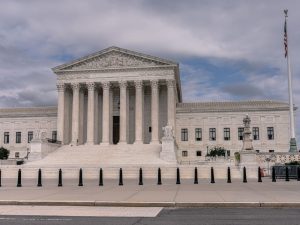Just as some commentators suggested at the time, the language of the recent Supreme Court decision in West Virginia v. EPA is being used to support challenges to federal oversight in cases from nuclear waste storage to abortion access to workers’ rights. According to the Director of the University of Maryland’s environmental law program, Robert Percival, the increasing number of filings that rely on the doctrine cited in West Virginia “illustrates the old adage that ‘when you have a hammer, everything looks like a nail.’”
Prior to the West Virginia ruling, courts typically relied on precedent called the Chevron doctrine that was set in the 1984 decision Chevron v. Natural Resources Defense Council. The rules set in Chevron say judges should defer to agency expertise whenever Congress has used vague authorizing language in a statute.
The West Virginia ruling, by contrast, saw the Supreme Court’s six conservative justices focusing instead on the “major questions” doctrine. This long-standing legal theory says that Congress must state explicitly that it wants to give sweeping authority to an administrative agency. However, the Court abdicated specifying how or when a regulation in question would qualify as a “major question.”
That omission means such determinations now rest with federal agencies and the lower courts. As a result, agencies that have been operating under broadly worded Congressional statutes now could find themselves having to cite specific authorization for their regulating actions.
For example, Texas Attorney General Ken Paxton (R) has argued that the Department of Health and Human Services lacks the authority to impose guidance saying emergency abortions are protected in all states under the Emergency Medical Treatment and Active Labor Act. Paxton also is trying to keep the Nuclear Regulatory Commission from issuing a license to a private facility to store radioactive waste in the Permian Basin.
In another case, over 20 states have come together to overturn a Department of Agriculture policy that expanded the department’s definition of sexual discrimination to include sexual orientation and gender identity.
Also in Texas, Solicitor General Judd Stone is challenging the legality of the immigration policy Deferred Action for Childhood Arrivals (DACA), saying the Department of Homeland Security (DHS) “lacked authority to adopt DACA.” On the same day, DHS filed a response saying “DACA does not present questions of deep economic and political significance” and that “Congress has never rejected proposals to amend DHS’s authority to create the DACA policy.”






















